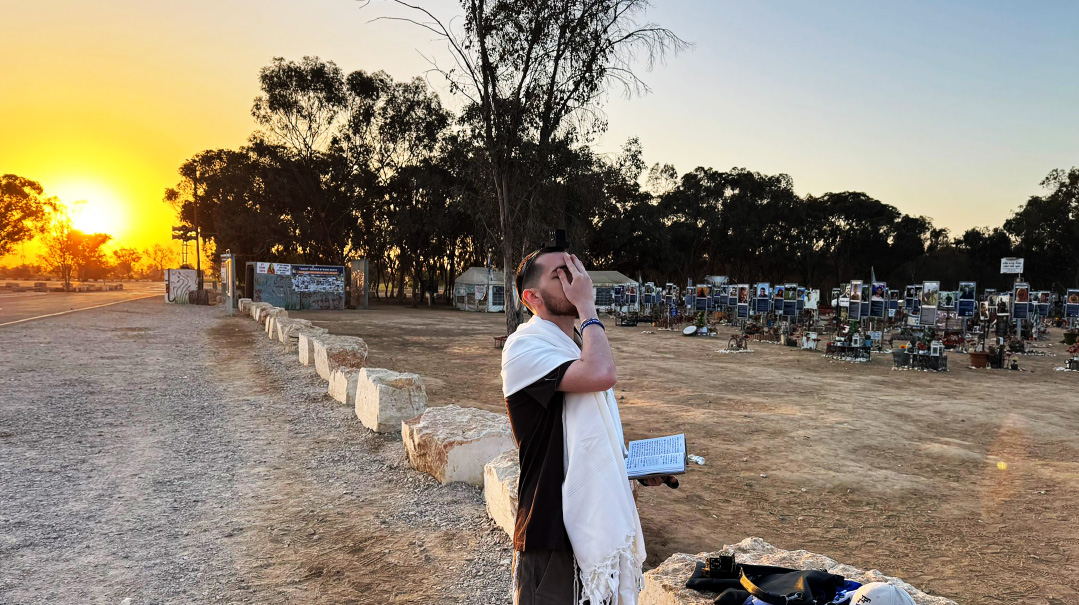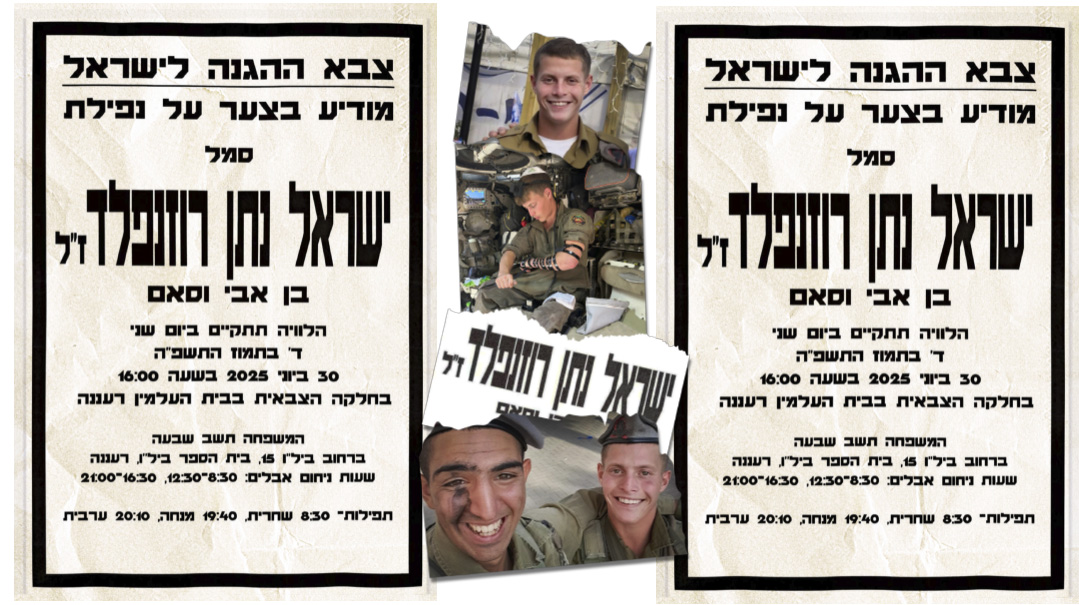Crying It Out
| December 19, 2023Suddenly, I found myself questioning our all-knowing Father. How could He let such incredible atrocities happen?

I
’ve never been one to question why things happen. I feel the pain, I cry, and I daven and beg Hashem to help — but I simply haven’t struggled with the “how could Hashem…” aspect of history.
I felt a certain confidence in my emunah, a certain reassurance that when it comes down to it, I must have some strong faith if I subconsciously accept that I can’t possibly understand why Hashem does what He does. And the truth is, I wouldn’t want to, because a G-d I could understand wouldn’t be a G-d to Whom I could submit.
But all of this self-assured confidence in my own faith went out the window on Simchas Torah this year, the day forever to be remembered as the October 7 massacre. As news trickled in and then turned to a deluge, the horrific details threatened to drown me as they pulled and tore at my heart and soul. Suddenly, I found myself questioning our all-knowing Father. How could He let such incredible atrocities happen? How could a human being or a nation be expected to survive this kind of torture?
Marinating in our collective grief, I felt connected to every single Jew, but somehow pulled further and further from He Who Knows All. Like all of us, I struggle with the fact that somehow, life has to continue. I still need to feed the kids and pack their lunches, send them off to school and put them to sleep. And, my current struggle — I still have to wake up multiple times a night with my baby-turned-toddler.
I used to be a big proponent of sleep training, reading all the books and blogs about creating schedules and eventually weaning the baby until she slept through the night. For my first bunch of kids, I tried it. I suffered through the crying and winced through the pushback, because I knew it would pay off with better sleep for all of us.
But between my last baby and this one, I’d done a lot more reading and listening about attachment theory and the mother-child bond. This time, I decided, there would be no “cry it out.” I was going to respond to my baby whenever she needed me, regardless of how many times I’d already fed her that night or what time it was when she woke.
“She’s twenty months now,” I told my mother on the phone one evening. “It just doesn’t seem normal that I’m as tired as when she was a newborn. I’m waking up almost as often as I did then!”
My mother sighed. “This isn’t good for her, and it’s not good for you. She’s going to have to learn that she can’t eat throughout the night.”
My exhaustion was all-encompassing; between everything that’s happening in the world around me, to fellow Jews all over the world, and still tending to the needs of my family, I was drained. “I may have to suspend my attachment theory obsession for a bit, and let this baby cry,” I told myself.
That night, I put the baby to sleep, begging her to sleep through the night so I wouldn’t have to let her cry. (She sleeps in the big, walk-in closet in my room; I can hear every little whimper.)
She slept through what had now become her typical 12 a.m. wake up, but it became clear at 2:30 a.m. that she wasn’t prepared to do the full night quite yet.
I awoke to her crying and decided I hadn’t given her enough preparation, I’d feed her just this once, and then, if she cried again later in the night, I’d go to her and tell her, “No more.” I took her out of her crib, warm and soft, and brought her into my bed where I nursed her back to sleep. No sooner had I deposited her back in her crib, did she wake up crying again. “No, Mommy,” she was calling. “Mommy, more!”
I opened the door to the closet and stood next to her crib. “Mommy just fed you, and I love you so much,” I cooed. “But now it’s time for sleep.”
I bent over the crib, hoping to stroke her back. But she stood up, wrapped her arms around my neck, and lifted her feet so as to hang off of me.
“Peese, mommy,” she cried. “Peese, peese.” The “please” usually gets me. But I couldn’t let it this time, I reminded myself. “This is good for her and for you,” I heard my mother’s voice in my head.
“Mommy loves you so much,” I said again, as I detached my screaming toddler’s arms from around my neck.
I hated walking out and closing the door, hated leaving her without me. All I wanted to do was pick her up and cuddle her, bring her back into bed with me. To be the comfort she needed, calm her down, hold her close.
I got back into bed, her crying slowing slightly, but my heart hurting just as deeply. And suddenly it occurred to me, at three in the morning, in the midst of foggy sleep and the plea of the cries: “This is how Hashem feels.”
The thought materialized in my head out of nowhere, but it resonated deeply. This is how He feels. His pain, so much more intense than our pain, knowing that we can’t understand why He would do this to us, knowing that we can’t see the way it is shaping and stretching us, painstakingly molding us into the People and the Nation He wants us to be.
The shame of my “how could He?” enveloped me. Who did I think I was? He knows everything that I don’t know! And He hurts far more than I do when His children are in pain.
I thought about my baby’s outstretched arms and the temptation I had to pick her up. I thought about her, “Peese? Peese?” and the almost unbearable urge to grab her and hold her close. And I realized, there, in the dark of the night and the darkness of my heart, that I, too, can make myself irresistible to Hashem. I, too, can cry and “Please” and beg and reach out, until He simply can’t resist anymore, but grabs us all in His full embrace, bringing us close and holding us tight.
(Originally featured in Family First, Issue 873)
Oops! We could not locate your form.







